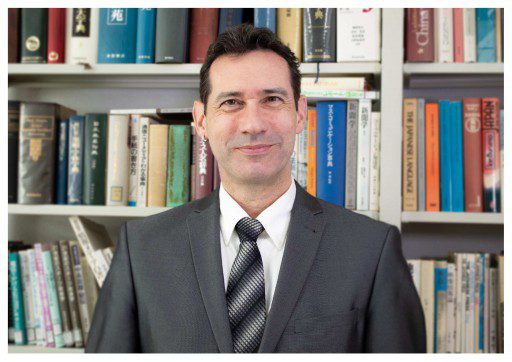A Message from the Dean
International and regional communities and the natural environment have shifted significantly in recent years, and, as there are many problems that are difficult to solve within particular, specialized frameworks, members of the workforce able to serve as coordinators for each specialty are also in increasing demand. This faculty aims to foster “global specialists” accustomed to engaging with various experts from diverse domestic and international perspectives.
An education at the Faculty of Global and Science Studies (FGSS) is distinguished by a focus on developing problem-solving ability based on “design thinking” and a comprehensive approach to learning, with a fusion of the sciences and humanities as its background and scientific and technological literacy at its core. It is this faculty’s view that, by gaining experience in both theoretical analysis and hands-on practice of the design process, students can acquire the skills crucial for creating “new value” in problem-solving.
From that viewpoint, we also treat overseas academic exchange as a kind of problem-solving project, and, as a general rule, all students study at a university abroad for one year. Students set goals prior to departure and, when they tackle daily challenges in a cross-cultural context overseas, they expand their understanding of the diversity of perspectives in the world, and, at the same time, continuously learn what it means to possess an objective view of Japan—an experience that contributes to a boost in their communication skills.
After studying abroad, students complete a problem-solving project as a team in collaboration with regional organizations such as businesses and local governments. Students generate ideas in a variety of areas and, as they fine-tune their views, go on to complete a project grounded in the form of the design process, drawing on broad foundational knowledge acquired before studying abroad and skills refined during their overseas academic exchange. Their education as “global specialists” culminates in this project, which, in the FGSS, takes the place of a traditional graduation thesis.
One more feature of our faculty is that we have rich partnerships with universities all over the world and offer full-time and exchange students many opportunities for communication. Local and visiting students study in class together and plan and participate each day in events on and off-campus, broadening one another’s global perspectives. This environment of exchange constitutes a cornerstone of the diversity of the FGSS, and it is our hope that this faculty will continue to evolve in the future.
—Marc Loehr, Dean of the Faculty of Global and Science Studies at Yamaguchi University
